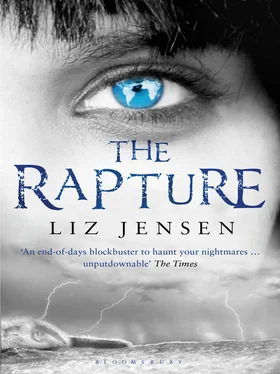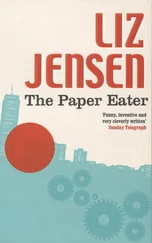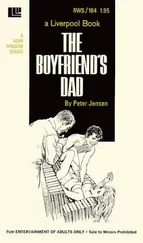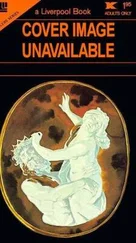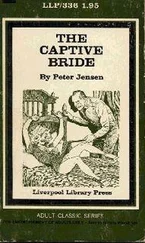Something is sticking out of her eye.
Strokes among the young are on the rise, according to Mary, my physio at the rehab centre: an oddly unpublicised side-effect of alcohol and drug abuse. Many wheelchair-users are of my own generation or younger, often accompanied by parents or even grandparents. I see proof of this on my early morning outings, when I’ll find myself doing an ungainly little swizzle-dance in front of another set of wheels, positioning my chair to leave my camarade de guerre enough space on the pavement. As we do this, those of us still blessed with the power of speech commiserate about dog-shit, and inspect one another’s wheelchairs just as blokes eye up one another’s cars, or mums compare baby buggies, and we smile ruefully in recognition of our shared knowledge of a world in which practicalities and the subtlest of physical pleasures — the delicate aftertaste of artichokes, a particular piece of music, not to mention the erogenous zones that emerge to compensate for those we have lost — have come to mean more than we could ever have imagined before. Like it or not, and I do not, I have become a member of a community. Though I would rather saw off my own head than join a club, or counsel wheelchair users — something I might be qualified to do. I have enough of my own stuff to deal with. And look how well I’m doing!
I have a job, along with an office I can call my own, and a spider plant that refuses to die no matter how much coffee I pour on it. I am also in charge of several junior nutcases, including a sixteen-year-old murderess obsessed with the Apocalypse.
Blessings: count them daily, Gabrielle.
Practise what you preach. Cuando te tengo a ti vida, cuanto te quiera.
Keep a fucking gratitude journal.
When I get home from my morning glide, there’s a package waiting for me, and a card. I recognise the erratic handwriting on the parcel as my friend Lily’s. She’s written a note instructing me to have a wonderful day. Inside the packet is something soft wrapped in scented tissue. Fabric: fabric whose heft indicates it is unashamedly expensive. As I pull the tissue apart, a sudden flood of red silk spills out and collects on my lap. A dress. I hold it out. It has spaghetti straps, a swooping de’colletage, sequins on the hem: it’s the kind of dress a Brazilian transsexual would kill for. Tears shoot into my eyes when I realise the date, and what I have suppressed. Can I really have become so disconnected from myself?
The card is from my brother Pierre and his family in Canada. One of the twins, Joel, the younger by nine minutes, has sent a drawing of me in my wheelchair. I am holding a balloon. I have a wide banana-shaped smile on my face and the long sharp eyelashes of a beauty queen.
Later that day, four morbidly obese girls start fighting in Physical Expression and I have to call in extra backup, so by the time I get the message to come to Dr Sheldon-Gray’s office, I’m as miserable as any wheelchair-user is allowed to be on her thirty-sixth birthday in a town where she has no friends. But Sheldon-Gray has news for me. As per my spur-of-the-moment request, my boss has engineered my social debut at the charity function at the Armada Hotel tonight.
‘Buffet dinner included,’ he beams, handing me the invitation. ‘Drinks from seven-thirty.’
She shall go to the ball!
After the day I’ve had, it’s a deeply unappealing prospect. When I asked for the invitation, I was in one of those optimistic, enquiring moods that can occasionally overtake me, and which I have taught myself to indulge, to counteract the darkness. Today, in a different cast of mind, the notion of cornering some hapless scientist and quizzing him or her about the background to Bethany’s delusions suddenly feels idiotic, unprofessional and shamefully naive.
‘Thank you,’ I tell Sheldon-Gray. ‘I’d love to come.’
No more dramatic entrances in impossibly high stiletto heels for Gabrielle Fox, I think some hours later, as I negotiate a pool of grease on the tiled floor of the Armada Hotel’s giant industrial kitchen. She is Cinderella brought low, arriving at the ball via a service entrance because of lack of access front-of-house. The bang of pots and pans, the sizzle of fat and the hiss of pressure-cooker steam are noises she will come to know well in her new life. Twang that guitar. I trundle my way past churning dishwashers, vast hobs and sauce-splattered chefs, and out via the kitchen’s double swing-doors and a bleak corridor into the sudden gaudy hubbub of the charity reception. Where spread before me is everything I used to enjoy, in an ironic way, in the world of Before, but have developed a dread of since the accident: tuxedo’d men, women parading the sparklier end of their wardrobes, waiters with drinks and fiddly, experimental-looking things to eat on trays. Later, there will doubtless be speeches by men who praise the untiring efforts of the stalwarts behind the scenes. But I remind myself that if nothing else, I have a mission: to find someone I can interrogate about natural catastrophes — such as tornadoes in Aberdeen — and how one predicts them. Hoping to find a guest-list without having to enter the throng, I manoeuvre my way across its perimeter behind a screen of potted plants. But I have been spotted by a tall woman who has laid a manicured hand on my arm, and is now bending down, as though on a giant hinge, to clink her necklace in my face.
‘Welcome. What a gorgeous dress you’re wearing.’
‘Oh thank you,’ I muster a smile. ‘It’s a present from a friend. It’s the first time I’ve worn it.’
The fact is, I feel fraudulent, undignified and inappropriate: a non-woman pretending to be a real one. The blood-red dress, which would look elegant on an upright woman, feels brash stuffed into a wheelchair, with my boobs popping out like two scoops of vanilla ice-cream yelling, lick me. I am a cleavage on wheels. I am Disabled Barbie Goes to a Party but Does not get Laid for Reasons that Escape No One.
‘It’s so heartening to have some real victims of the condition with us tonight,’ the woman is telling me conspiratorially, her hand still on my arm. ‘It brings home the urgency. And it’s positive. I’m all for positive. And I bet you are too.’ And she bats my bare shoulder in a ‘go, girl!’ gesture. ‘You’re so brave,’ she says, expanding on her theme as we make our way through to the main hall, a sea of arses and cummerbunds. ‘Don’t tell me you’re not. I know how cruel it can be, my niece Jilly had it. Jilly’s father always called it SB. Short for son-of-a-bitch.’
Finally I am with her. Spina bifida. Oh Jesus, how do I get rid of her? This town needs a gas chamber.
‘I’m sorry. This is from a car accident,’ I say, patting my chair as if it is my good old friend, which it is not and never will be. ‘Perhaps those people over there can help you?’ I suggest, pointing out three other wheelchair-users who I presume to be genuine victims of ‘SB’. This is their gig: they can do the talking.
‘An accident?’ she wants to know. Curiosity is an attribute one can applaud in oneself but despise in others.
‘Car.’ I have learned to keep it brief.
‘Lord, what a terrible shame. You’re so attractive!’
I know, I want to tell her. It should have happened to someone really ugly. And then it wouldn’t have mattered.
But people mean well. Flashing her a smile, I execute a fast wheelie and cross the room swiftly. A wheelchair can part crowds like the Red Sea. The white-tuxedo’d Dr Sheldon-Gray is with his wife Jennifer, who I recognise from the photo in his office, which flatters her because it doesn’t show her porky bottom or her visible panty-line. Will I ever get used to the way I am forced to assess crotches whether I wish to or not?
Читать дальше
